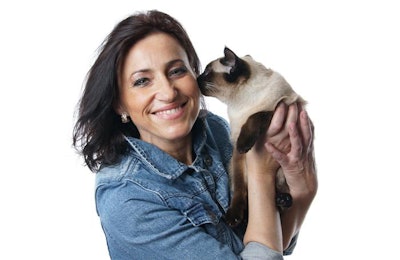
Over the past decade, Hispanic people have become increasingly likely to own pets in the United States, wrote David Sprinkle, research director of Packaged Facts, in Petfood Industry. However, Hispanic pet owners in the US differ from other demographic groups in six key ways, according to Packaged Facts' market research.
1. Growing faster
Between 2007 and 2016, Hispanics grew from 10 percent to 15 percent of all pet owners. The number of Hispanic pet owners grew from 11.4 million to 20.4 million. That increase in pet ownership was larger than that among non-Hispanic whites.
2. Different retailers
Hispanic pet owners are more likely than average to purchase pet products at PetSmart or Petco, or at drugstores/convenience stores. Hispanic pet owners are less likely to buy pet products online or at wholesale membership clubs, veterinarians, pet stores other than Petco or PetSmart, or discount stores.
3. Acculturation
Acculturation levels play a major role in Hispanic pet ownership patterns. For example, the percentage of Hispanics owning pets rises from 48 percent of foreign-born, Spanish-dominant Hispanics to 64 percent of US-born, English-dominant Hispanics with at least one parent born in the United States.
4. Brand experimentation
In general, Hispanic pet owners are less attached to brand-name products than are their non-Hispanic counterparts. Hispanics are, for product shopping in general, less likely to always look for a brand name on a package and less likely to agree that it’s important to have the brand they like, regardless of price. Also, a significantly higher proportion of Hispanics like to change brands often for the sake of novelty.
5. Budget minded
Hispanic pet owners are more likely to agree that many pet products are becoming too expensive. Likewise, they are more likely than average to look out for lower prices, special offers and sales on pet products.
6. Health conscious
Both Hispanic dog and cat owners are more likely than non-Hispanic pet owners to agree that their pet’s health conditions are important to them when buying dog foods, and to consider their dog’s food allergies and sensitivities when purchasing pet foods, such as prescription pet foods.



















